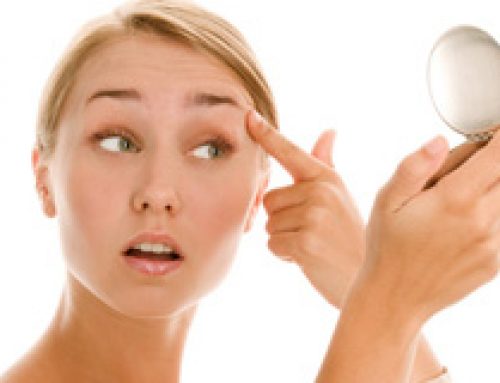
A couple of weeks ago, a meme started doing the rounds on social media, showing the Kardashian-Jenner clan on the cover of Hollywood Reporter – their faces Photoshopped to reveal sagging skin, deflated lips and wrinkles. “When you can’t get your Botox during quarantine,” read the caption. It’s clearly meant to be a joke, but it does raise an important question. Thanks to lockdown, most medical practitioners have been banned from carrying out non-essential cosmetic procedures. But what effect is that having on people?
According to the International Society for Aesthetic Plastic Surgery, nearly 13 million non-surgical treatments were carried out worldwide in 2018. Among these, just over six million of them were botulinum toxin (Botox), and nearly four million of them were hyaluronic acid or filler, which is respectively a 21 per cent and 28 per cent increase since 2014. That’s a lot of work, which is hardly surprising. With the rise of social media, and with it rampant selfie culture, there’s never been more pressure to show off our best selves.
The rise of injectables
Filters that smooth lines, plump lips, and nip and tuck at our contours can only get you so far, while ‘going under the knife’ is exactly that: undergoing major cosmetic surgery, which means significant downtime, irreversible changes and even potential risks. Surgical procedures can also be prohibitively expensive, making them the preserve of the rich.
Injectables, however, have opened up cosmetic procedures to the masses; they’re affordable, low risk, temporary and with minimal downtime. They’ve also been made popular by the likes of the Kardashian-Jenners, global influencers and other reality TV stars, to the point where they’ve simply become normalised as part of our beauty routine. The problem with these procedures, however, is that you have to keep topping them up – Botox every four to six months and dermal fillers every three to 12 months depending on the area – which can’t be done in lockdown.
Sarah, 36, an interior designer in London, has been getting Botox on her forehead and around her eyes every four months since 2014. “I started getting bad wrinkles in my late twenties and it made me feel depressed,” she tells Vogue. Sarah is anxious about what will happen when the effects of her Botox start to fade. “There are more important things going on in the world right now, but I’m terrified about my wrinkles coming back. It’s taken me a long time to feel comfortable in my own skin.”
Rose, 24, a New York-based graphic designer, has been getting lip filler since 2016 and filler in her cheeks since 2018. “I’ve always been insecure about my looks, but getting filler changed that,” she says. “[During lockdown] I can already see my lips getting smaller and my cheeks less defined. It seems silly with everything that’s happening, but it’s all I can think about.”
Clinical psychologist Dr Annemarie O’Connor sheds light on the situation: “Being prohibited from anything you’ve been used to having as part of your routine, which makes you feel good or makes you feel like ‘you’, is going to be a really difficult adjustment. Some people may adjust quickly. Others may become super focused on somehow accessing cosmetic procedures as they see it as the only answer or solution to address how bad they are feeling about themselves.”
Flouting lockdown rules
Indeed, both in the UK and New York, there have been reports of people trying to flout lockdown rules by inviting cosmetic practitioners to their homes to carry out procedures. Meanwhile, in accordance with new city guidelines concerning elective procedures, practices in Beverly Hills have started to reopen. One of those practices is AM Facial Plastics, whose founder Dr Arash Moradzadeh recognises the link between his services and his clients’ mental health. “The lockdown and fear of coronavirus have had a profound psychological impact on most people,” he tells Vogue. “During this stressful time, self-care makes a big difference in how we feel. Cosmetic procedures are a type of self-care. Especially when we are bored and stuck at home, we end up looking at ourselves in the mirror and get upset to see the return of frown lines. This makes us feel even worse.”
Since reopening, Dr Moradzadeh has already carried out numerous procedures. “I have had patients drive five hours to see me,” he notes. However, not everyone is happy, with Beverly Hills councilman John Mirisch attempting to block the reopening of the city’s practices, telling the Beverly Hills Council that: “No one needs Botox in a pandemic.” But what if he’s wrong?
British model and trans activist Munroe Bergdorf started having non-invasive procedures to feminise her features when she was 23. “Injectables helped ease my gender dysphoria,” she tells Vogue. “It made a huge difference with how I saw myself and definitely gave me a little more confidence in my appearance.”
Bergdorf now has Botox every three to four months and Profhilo, an injectable hyaluronic acid that treats skin laxity, every six months. Though Bergdorf is somewhat relaxed about not having access to her regular procedures at the moment, she is concerned for others: “I’m very aware of how many trans people will be feeling how I felt before surgery, and that can’t be taken lightly. Dysphoria impacts trans people’s quality of life. For us, medical procedures can make all the difference when it comes to our mental health and also physical safety.”
Perhaps, then, non-essential procedures are more essential than we first thought. Benjamin Kauffholz, co-founder of the Dr Dray London clinic, certainly thinks they are. “What we do is bring joy to our clients, we bring confidence,” he explains. “It’s about giving a client a new lease of life. Many clients come in self-conscious and when they leave, they exude confidence once more.”
Reece Tomlinson, CEO of cosmetics treatment company Uvence, believes we need to stop thinking about cosmetic procedures as being motivated solely by vanity, but rather as a means of correcting something that may cause stress, anxiety, reduced self-confidence and even depression. “For some, cosmetic procedures represent a major facet of their self-identity and confidence,” he tells Vogue. “By removing the ability to receive treatments, some patients are experiencing higher levels of stress and anxiousness due to the potential impact that not having treatment may have on their appearance.”
A time for reflection
However, there might be a silver lining. While this time may indeed be triggering for many, it can also be a time for reflection. By removing access to those quick fixes, things we rely on to boost our self-esteem, we may be forced to confront larger underlying issues relating to self-worth. “I’m sure there are benefits to this forced period of abstinence,” notes Rebecca Sparkes, a psychotherapist who specialises in addiction.
“Some people, perhaps those with more robust self-worth, will recognise that they lived without treatments for over 10 weeks and were actually OK. Some people who have struggled without their procedures may be forced to acknowledge that their self-worth is fragile, and exposed as fragile without the ‘fix’. I would hope they would seek help from a specialist.”
This is something Sarah has experienced. “One thing I’ve learned is that I rely upon Botox too much to feel good about myself,” she says. “I’ve started doing yoga and breathing exercises, which has been making me feel better.”
Which is, perhaps, the most important point. It’s not about whether cosmetic procedures are essential or not. They clearly are to a large proportion of people. It is why they feel essential which is problematic, as it points to a much larger systemic issue: the need to conform to some internalised notion of beauty ideals and gender stereotypes. What this pause in normal life will hopefully bring, however, is a reconsideration of how we define beauty as a whole. Only then might we no longer depend on these quick fixes to boost our self-esteem
Source: British Vogue


Leave A Comment